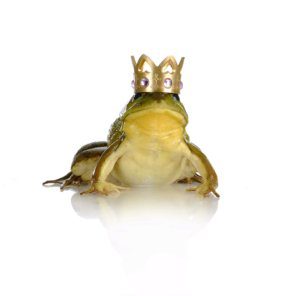 Do you ever wonder why the person you meet in a job interview somehow disappears right after the interview and their unskilled, sloth-like, Doppelganger-with-an-attitude shows up for the first day of work? One of the answers lies in Behavioral Interview Questions.
Do you ever wonder why the person you meet in a job interview somehow disappears right after the interview and their unskilled, sloth-like, Doppelganger-with-an-attitude shows up for the first day of work? One of the answers lies in Behavioral Interview Questions.
Sharon Maaz, president of the Association of Business and Professional Women, wondered the same thing. In this week’s VLOG post, I answer Sharon’s question and yours and tell you why Behavioral Interview Questions are one big solution to this frustrating problem.
[embedyt] http://www.youtube.com/watch?v=8boC4vWOPuM[/embedyt]
Sharon Maaz:
Amy, I’d like to know, “Why is it that when I interview someone and they seem like the perfect employee, that person doesn’t show up for work. It’s an entirely different person that comes to work.
Amy Castro:
Well, it’s kind of like the story of the frog prince, where the frog turns into a prince after he finds his perfect match and true love.
Unfortunately, in the real world that fairy tale is completely reversed. You find the prince or princess who is perfect for the job, and then you can’t understand why a frog shows up on the first day.
Here’s something to consider: Oftentimes we look at it as being an issue with the candidate, that there’s something wrong with that person. However, you might want to take a look at your interviewing questions.
If you’re still using questions in your interview process like, Where do you see yourself in five years?, or, What’s your greatest strength, or weakness?, you’re going to get answers that are well researched on the internet and probably aren’t true.
Here’s how that’s going to go:
Interviewer: “What’s your greatest weakness?”
Applicant: “My greatest weakness is that I’m so dedicated to my employer, that I sometimes forget to go home at the end of the day.”
One of the key answers to solving this problem and finding the true candidate that you’re looking for is to use Behavioral Interview Questions.
Behavioral Interview Questions, or sometimes you’ll hear them called Situational Interview Questions, are designed to find out about a person’s past behavior to see “Who are they really?” If you design them well, and you align them very closely with the position that you’re trying to fill, you will be better able to identify the “right” person who has had the experience you need and has faced and solved the problems that they’re going to face in your organization. Behavioral Interview Questions usually starts with the phrase similar to, “Tell me about a time when . . .” For example, I might ask,
“Tell me about a time when you had to deal with an angry customer. What did you do or say to solve the problem and what was the result?”
Asking questions in a behavioral format instead of asking those lame, old interview questions, will get you information about what that person has done in the past, what problems they’ve solved, and even some great information about how he or she thinks.
Therefore, before your next interview, be sure to give your interview questions a really good, “once over.” Get rid of those old-school questions and write questions that are specific and targeted for the position you’re trying to fill. That way, you won’t get a frog on the first day. You’ll get the person who was the person that you interviewed and wanted to hire in the first place.
______________
 Want to learn more of the most common interview mistakes you need to avoid if you want to stop kissing frogs? Be sure to attend my FREE Virtual Training:
Want to learn more of the most common interview mistakes you need to avoid if you want to stop kissing frogs? Be sure to attend my FREE Virtual Training:
Hire the “Right Fit” Employee Every Time
Tuesday, November 1 – 11 am to 12 pm CST
MORE INFORMATION/REGISTER NOW!
Space is limited, so be sure to register early!







